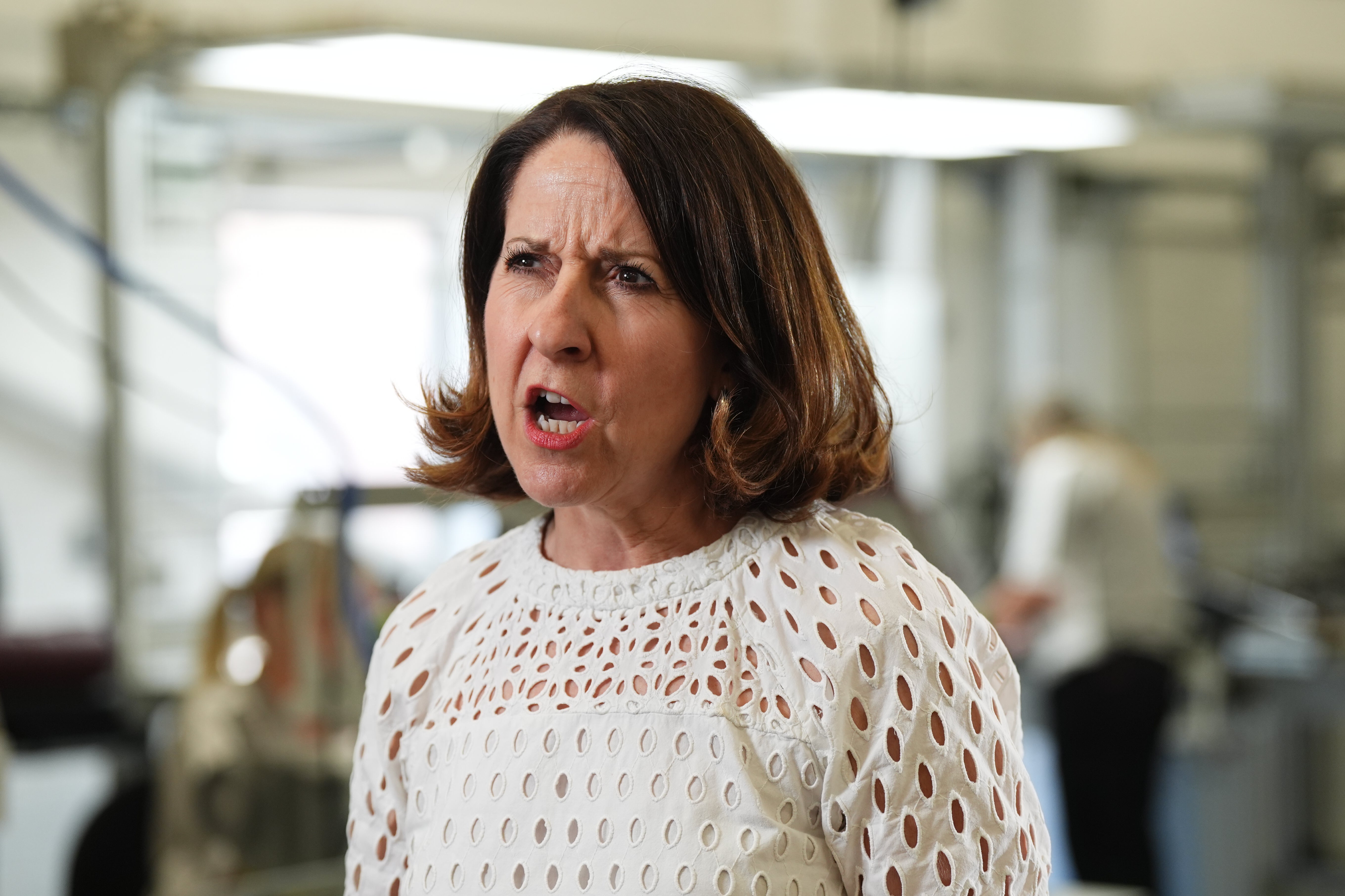More than 100 Labour rebels are prepared to reject Sir Keir Starmer’s plans to slash disability benefits – despite claims they could face deselection if they vote against the reforms.
The Independent has been told that MPs – including ministers – considering rebelling against the government’s welfare reforms on Tuesday next week have been threatened with losing the whip and even, according to two sources, deselection.
The issue came to a head in a fiery meeting of the Parliamentary Labour Party addressed by work and pensions secretary Liz Kendall on Monday evening with several MPs privately claiming it could end up with Sir Keir being forced out as leader.
The rebellion became official shortly after with an amendment to the welfare reform bill next week calling for a pause in the reforms, which has been signed by 108 MPs.

The government plans to make £5bn a year in savings on welfare mostly by reducing personal independence payments (PIPs) for those with disabilities by limiting access to them for all apart from the most disabled.
As many as 12 ministers are understood to be considering rebelling against the legislation aimed at cutting the welfare bill by £5bn a year. And, after surging past 100 signatures, the new amendment, fronted by the Treasury select committee chair Meg Hillier and other committee chairs, may garner even more support.
One senior MP told The Independent: “The sharks are circling around the prime minister.”
Another complained that “the government hasn’t listened to private concerns”.
Cabinet Office minister Pat McFadden, a key fixer for the prime minister, said the government would “listen to” Labour MPs, but suggested changes to the bill were unlikely.
Despite fears the government’s huge majority could be overturned, Mr McFadden told BBC Breakfast: “This is a really important package of benefit reform.”
He added: “It's a good package of reforms. I understand some MPs have signed an amendment. We'll talk to them over the next week or so between now and the vote, but the government believes that the package of reform is put forward is a good package of reform, and hope that colleagues will engage positively with it over the next few days.” And, asked whether the government will press ahead with a vote next week, Mr McFadden said yes, adding that “there is no escaping the need for reform of the welfare system”.
One of those leading the charge against the government, Debbie Abrahams, said rebels would “work at pace with the government to get reforms we think can work”.
The amendment notes that assessments suggest 250,000 people, including 50,000 children, may be pushed into poverty.
Ms Kendall told the private meeting of Labour parliamentarians that there is “no route to social justice based on greater benefit spending alone” but her appeal was described as “cloth eared”.

The cabinet minister said: “Our plans are rooted in fairness, for those who need support and for taxpayers.
“They are about ensuring the welfare state survives, so there is always a safety net for those who need it. They’re about putting proper safeguards in place to protect the most vulnerable.
“But above all they are about our belief that everyone can fulfil their potential and live their hopes and dreams when – collectively – we provide them with real opportunities and support. This is the better future we seek to build for our constituents and our country.”
Meanwhile, tougher measures are being considered to stop a rebellion. According to sources, ministers and other MPs have been warned they could face deselection if they resign and vote against the government. Downing Street denied this, with a source saying: “This isn’t how we do business.”
But a number of others have been warned that they could face the same consequences of former shadow chancellor John McDonnell, Zara Sultana and others who lost the whip after rebelling over the two child benefit cap.
Last week deputy prime minister Angela Rayner refused to rule out punishments for those planned to rebel against the government.
Meanwhile, it is understood that MPs requesting permission to miss the vote are being denied because the government wants a show of loyalty on the second reading vote on 1 July.

In the PLP meeting on Monday evening, just a week before the vote, Ms Kendall will try to persuade fellow Labour MPs that the government has no choice but to balance the books.
But former Jeremy Corbyn ally Richard Burgon MP has announced that he will be presenting a petition demanding wealth taxes instead of benefits cuts next week just 24 hours before the crucial vote.
Posting on X (formerly Twitter), he said: “It’s now confirmed: the vote on disability cuts will be next week.
“So next Monday in Parliament, I’ll be presenting my petition for a Wealth Tax - not disability cuts.
“Over 70,000 have already signed! Let's get as many as possible.”
Shadow foreign secretary Dame Priti Patel would not say whether the Conservatives would side with the Labour rebels in the Commons - which could inflict a damaging defeat on Sir Keir.
But she told Sky News the Tories backed the "fundamental principle of welfare reform, which could lead to structural changes in our country which our economy needs".
The issue became a subject of tensions in the run-up to last month’s spending review when a leaked memo from Ms Rayner also proposed eight new wealth taxes on the richest individuals and big corporations as an alternative to cuts.
The row played out during work and pensions questions in the Commons with one MP suggesting the benefits cuts will lead to "appalling poverty".
Labour MP Andy McDonald asked for further evidence on how many people will lose out on Personal Independence Payments as a result of the welfare reform bill.
Mr McDonald, MP for Middlesbrough and Thornaby East, said: "Ministers have highlighted the scale of PIP recipients expected to lose payments make up one in 10 of the total PIP caseloads, suggesting the impact of the cuts will be limited, but that's still 370,000 current recipients expected to lose on average, £4,500.
"But these numbers rest on a set of assumptions that the OBR has described as highly uncertain. DWP data shows there are 1.3 million people currently receiving PIP daily living payments who would not meet the new criteria.
"So before MPs are asked to vote on imposing such appalling poverty, will the DWP or the OBR provide further evidence underpinning these claims?"
In the Commons, Mr Burgon also claimed anyone supporting the reforms is voting to take away benefits from disabled people who need help "to cut up their food, wash themselves and go to the toilet".
Work and pensions minister Sir Stephen Timms said the reforms will "open up opportunities for people who have been denied opportunities for far, far too long".
It comes after Labour's Vicky Foxcroft resigned as a government whip over the proposed cuts last week.
Last week Sir Keir made it clear he will not provide any more concessions to rebels having already provided extra clarification for those who apply for PIPs.
He said: “Well, we have got to get the reforms through and I have been clear about that from start to finish. The system is not working; it’s not working for those that need support, it’s not working for taxpayers. Everybody agrees it needs reform, we have got to reform it, and that is what we intend to do.”
Asked about a potential rebellion, he responded: “The principles remain the same, those who can work should work. Those who need support into work should have that support into work, which I don’t think they are getting at the moment.
“Those who are never going to be able to work should be properly supported and protected. And that includes not being reassessed and reassessed. So they are the principles, we need to do reform, and we will be getting on with that reform when the bill comes.”
Millionaires to flee UK in record numbers
UK welcomes news of ceasefire in Israel and Iran’s 12-day conflict
DWP shares what will happen to PIP claimants who lose their benefits to cuts
All eyes on Donald Trump as Nato faces an existential test
Starmer pledges to spend 5% of GDP on national security and defence by 2035
Will Reform’s Britannia Card tax plan win back the super-rich?







